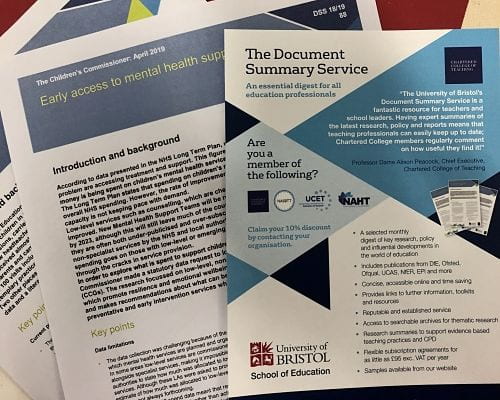 By Dr. Simon Brownhill and Dr. Frances Knight, University of Bristol School of Education
By Dr. Simon Brownhill and Dr. Frances Knight, University of Bristol School of Education
A recent report (Moore et al., 2019) placed improving behaviour in schools as a central priority for education contexts. For young people with ADHD [Attention Deficit Hyperactivity Disorder], the classroom can be a particularly challenging environment for them as they are often more inattentive (Kofler et al., 2008), and display more off-task (Imeraj et al., 2013) and disruptive behaviours (O’Regan, 2018).
As such, young people with ADHD require more support from educators in the classroom, but this is typically hindered by a limited teacher knowledge of ADHD (Kendall, 2016) and of evidence-based ADHD-specific interventions, both in the UK (Moore et al., 2016) and internationally (Arcia et al., 2000). In a review of UK teachers’ own perspectives, Moore et al. (2017) recognise the importance of informed pupil-teacher interactions, and the need for evidence-based interventions to effectively assist educators in their daily practice in the classroom. (more…)

 Blog post by Claire Lee and Lucy Wenham, School of Education, University of Bristol
Blog post by Claire Lee and Lucy Wenham, School of Education, University of Bristol

